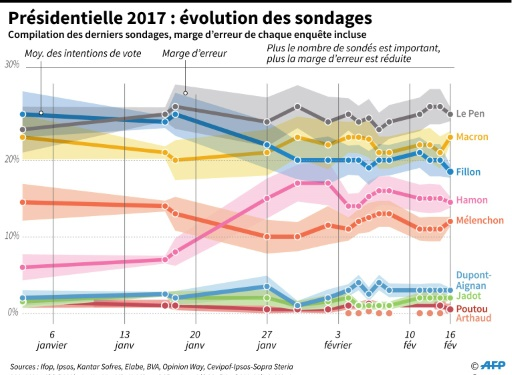
France votes today.
A lot of the focus has been on Le Pen. We've had weeks of "What if she wins?" or "Even if she loses, she's changing France!"
But the candidate who matters is the one who wins.
That's going to be Macron. And his re-election matters more than his 2017 win.🧵
A lot of the focus has been on Le Pen. We've had weeks of "What if she wins?" or "Even if she loses, she's changing France!"
But the candidate who matters is the one who wins.
That's going to be Macron. And his re-election matters more than his 2017 win.🧵
First, let's put the rise of the far right in perspective.
Indeed in 2002 Le Pen (père) got 18% of the runoff vote, in 2017 it was 34% and this time it will likely be higher.
That is more a feature of the evolution of the party than the country.
Indeed in 2002 Le Pen (père) got 18% of the runoff vote, in 2017 it was 34% and this time it will likely be higher.
That is more a feature of the evolution of the party than the country.
In 2002 FN was an overtly racist party.
In 2017 Marine Le Pen wanted to leave the euro.
Now she wants to stay in EU and immigration barely features in her programme.
France didn't get more Front National: it was the Front National that got more like France.
In 2017 Marine Le Pen wanted to leave the euro.
Now she wants to stay in EU and immigration barely features in her programme.
France didn't get more Front National: it was the Front National that got more like France.
To test this thesis is easy: a candidate ran on an unabashedly anti-immigration campaign quite similar to the Front National of 2002. And for all the media hubbub, Eric Zemmour got just 7% of the vote. To me that shows France's drift to the extreme is pretty limited.
I think something similar happened on the left. Yes the far left under Mélenchon did well (though not much better than past elections). But that is more the result of centre-left collapse than a desire for a Bolivarian revolution in France.
The candidate that actually matters is Emmanuel Macron. Absent a polling meltdown, he will win! So let's care about him at least a bit. Because for all this commentary on how much he is supposedly hated, the gilets jaunes etc, he's actually had a smooth run to re-election.
France is a country that loves chucking out incumbents. Yet Macron got the best first-round score for an incumbent president since Mitterrand in 1988. Macron has never looked anything other than very likely to win, even after a lacklustre campaign ahead of the first round.
His win in 2022 is perhaps more meaningful than 2017. Back then he won at least partly by default. Francois Fillon on the centre-right was huge favourite to become president, felled late on by various scandals. Macron was doing well for an insurgent, but not a clear winner. 

Some think he'd have triumphed anyway in 2017. I think that's doubtful. I reckon he might have come 2nd or 3rd, perhaps led a liberal block in parliament, wangled a job running the foreign or finance ministry. Not bad for a 39-year-old! And a platform for the future.
I digress. Anyway you could always argue Macron's agenda in 2017 had triumphed by default rather than enthusiasm. Voters had little track record to judge him by.
This time French voters HAVE lived with him for 5 years, and have no doubt as to what they are getting for the next 5
This time French voters HAVE lived with him for 5 years, and have no doubt as to what they are getting for the next 5
A lot of the analysis is muddled around Macron. Those who think he's a right-winger should look at the covid response. Those who think he's of the left should see who he appointed to run the Interior and Education ministries. A liberal? look at his trade and industrial policy.
I won't attempt a stab at assessing his record. My colleague @PedderSophie does this better anyway, having interviewed Macron many times over the years, written the bio and this piercing profile of him I recommend once again. economist.com/1843/2022/03/0…
So everyone can find something they dislike about Macron (I have a pretty long list, who doesn't?).
But the most usual feeling among the most voters is that he's done a good job. Yes, some strongly disagree. Someone always does. But look at who's going to win.
But the most usual feeling among the most voters is that he's done a good job. Yes, some strongly disagree. Someone always does. But look at who's going to win.
The key point is that Macron is the candidate who matters, not Le Pen. Elections matter because they tell us who voters think ought to run the country. Not who protests loudest, not who nearly won, not who you think ought to have won.
Let's wait until 8pm. Absent a stunning polling failure, it will be Macron who is running France until 2027. My humble advice at that point: stop caring about who lost the election and spend more time thinking about who won and why.
On that note, I'm off to the polling station. Vive la République. Et Vive la France!
• • •
Missing some Tweet in this thread? You can try to
force a refresh




